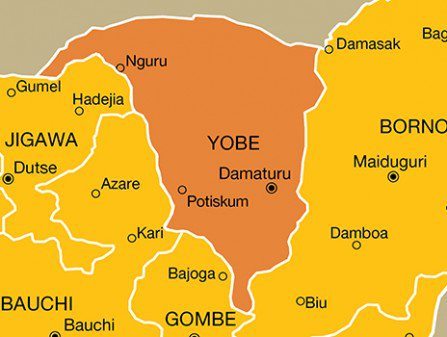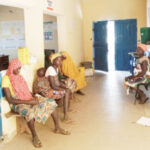As this year’s hot season sets in, residents in Yobe have started devising means to minimise its impact on their health.
Communities in the northern part of the state are known to be the worst affected during the hot season due to the nature of their environment.
- Insecurity: South-West leaders meet in Ibadan
- Inter-religious council links farmers/herders’ clashes to climate change
Speaking on how they are coping, Bakura Mala, a resident of Yusufari local government in northern Yobe, told Kanem Trust that people in his area suffer a lot during the season.
He said: “We are located in Sahara-prone areas surrounded with light soils and few trees to supply adequate air which result in the intense heat.
“Our community leaders and health workers often advise us to drink more water and avoid over staying under direct sun and many of us have already adopted the practice for our own good.
“As you can see in the village, almost everyone uses locally made hat and we pour water on it to cool us a bit when the weather is very hot or during business hours, while at noon time, we stay under makeshift shades in front of our houses to avoid the scorching sun.’’
Kanem Trust reports that the hot weather is hitting hard on the urban dwellers, especially when there is short supply of electricity .
A Damaturu resident, Lawal Ahmed, observed that electricity supply in the town used to be below average during the hot season due to higher demand by consumers.
“We largely depend on power supply to power our fans or air conditioner to have some relief when it is hot but the supply seems to be inadequate, so we use hand-made fans and usually stay in cold environment during hot season. ”
A check by our correspondent indicates that Damaturu weather soared up to 41 degrees on Thursday.
The Commissioner for Health, Dr Muhammad Lawan Gana, said government was planning to embark on sensitisation through various media to safeguard the public from the effects of the weather.

 Join Daily Trust WhatsApp Community For Quick Access To News and Happenings Around You.
Join Daily Trust WhatsApp Community For Quick Access To News and Happenings Around You.


